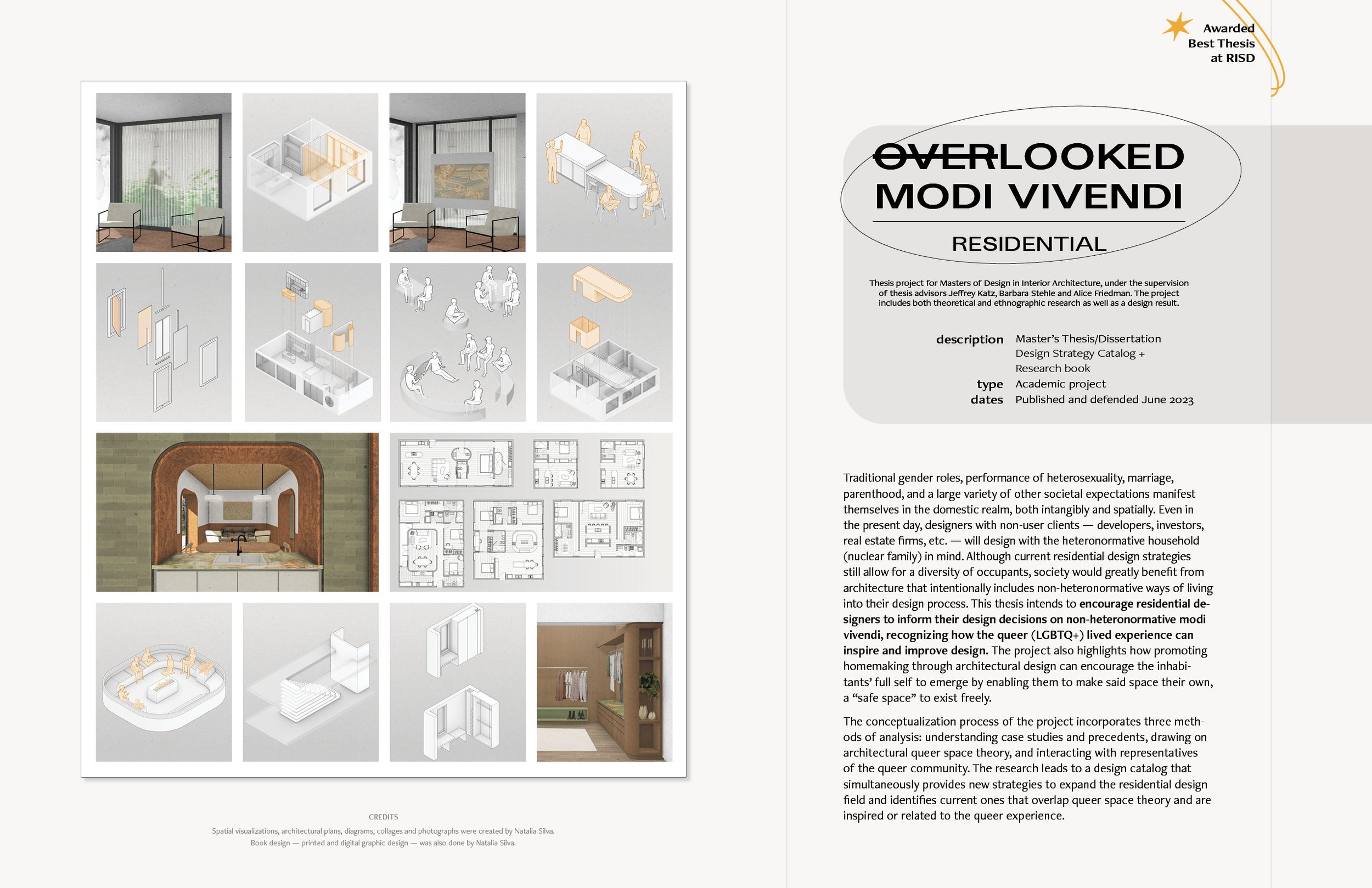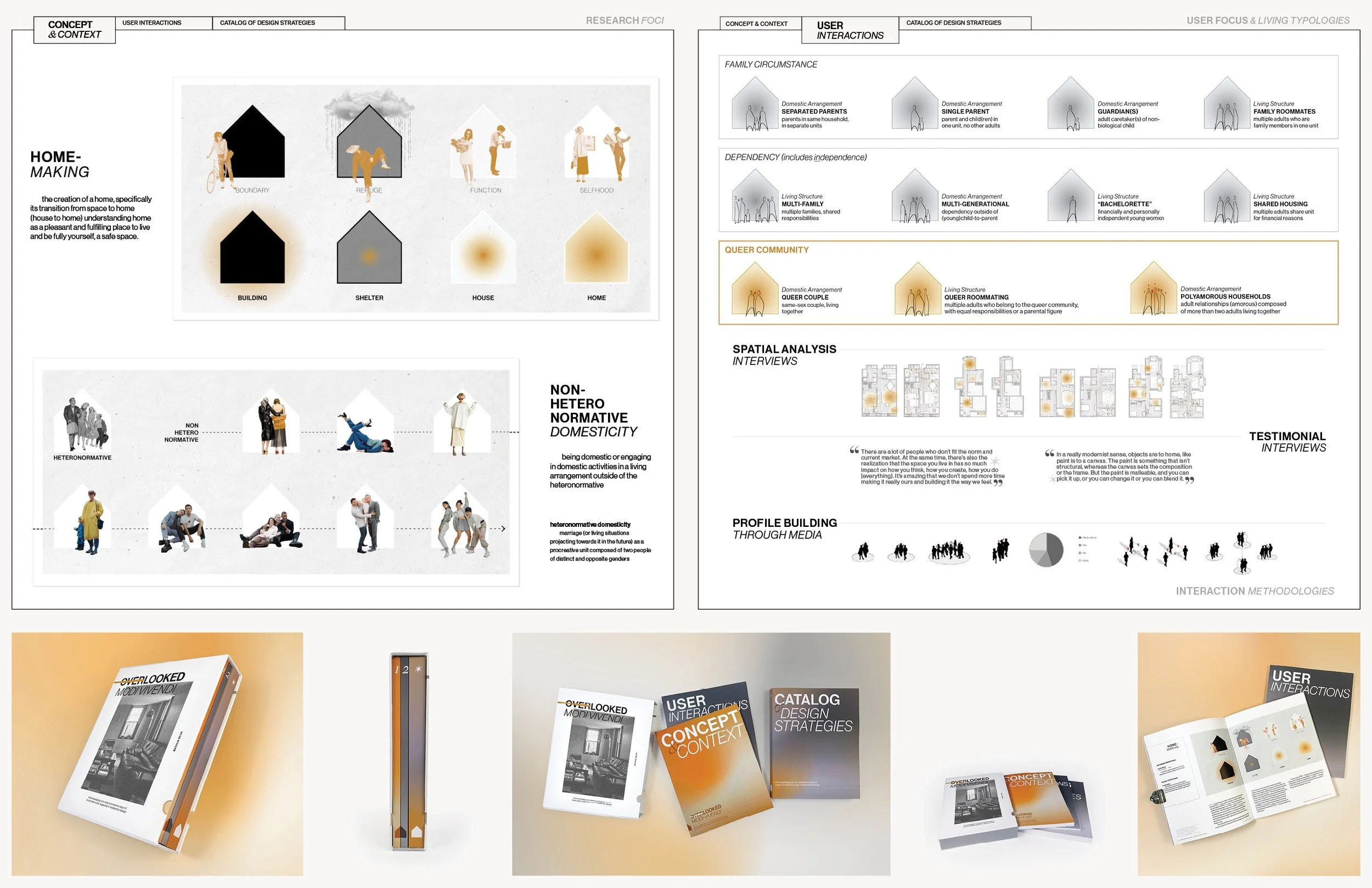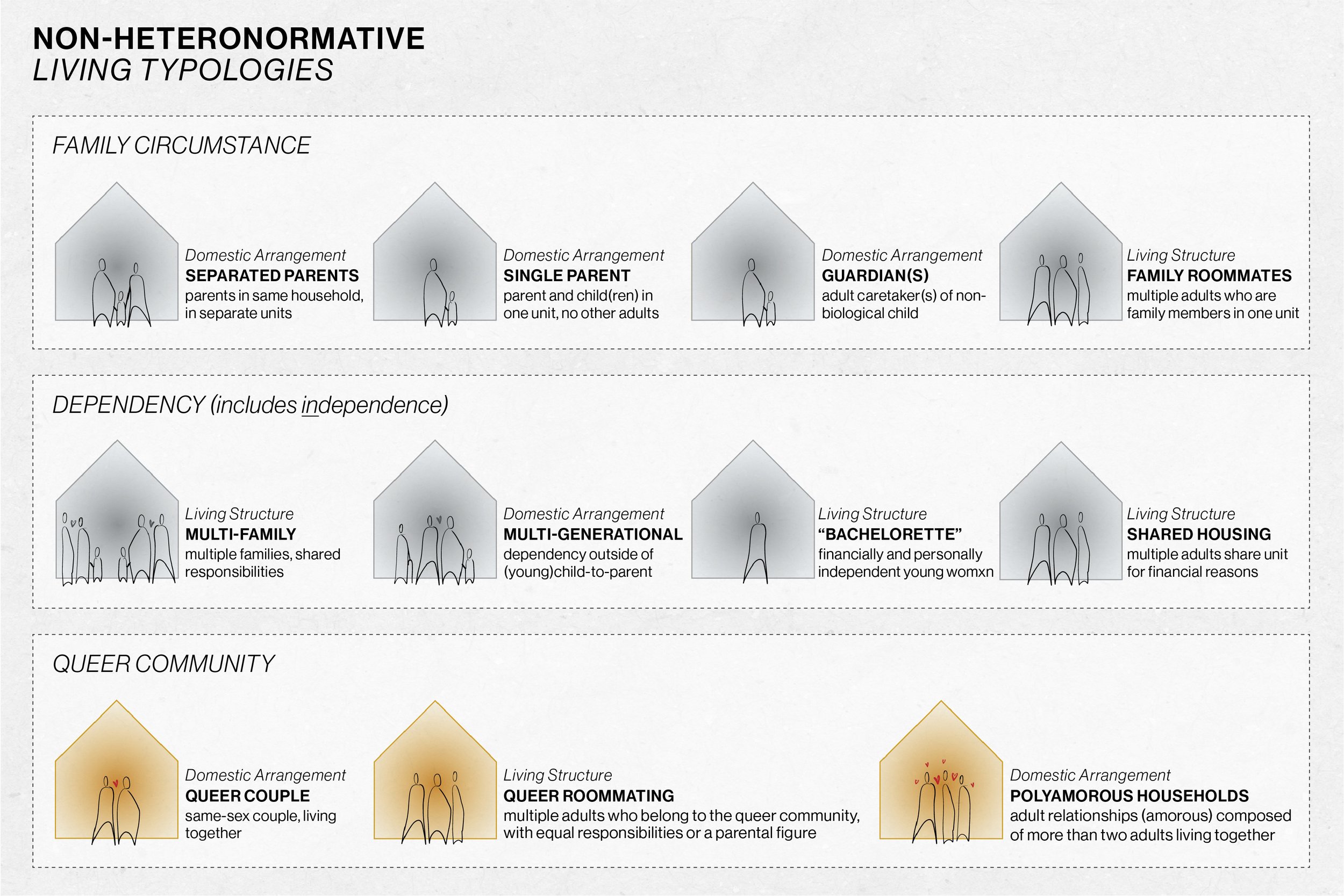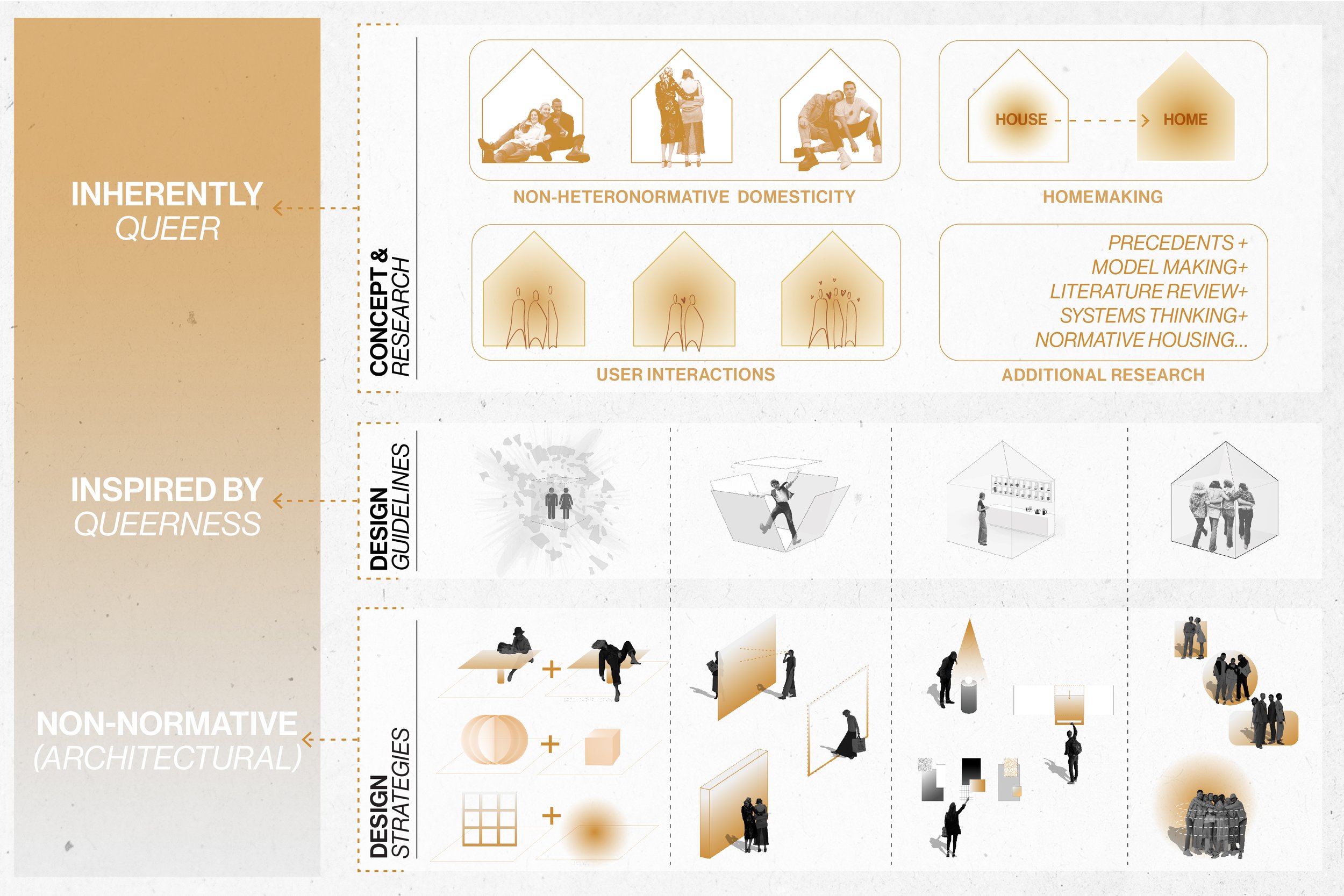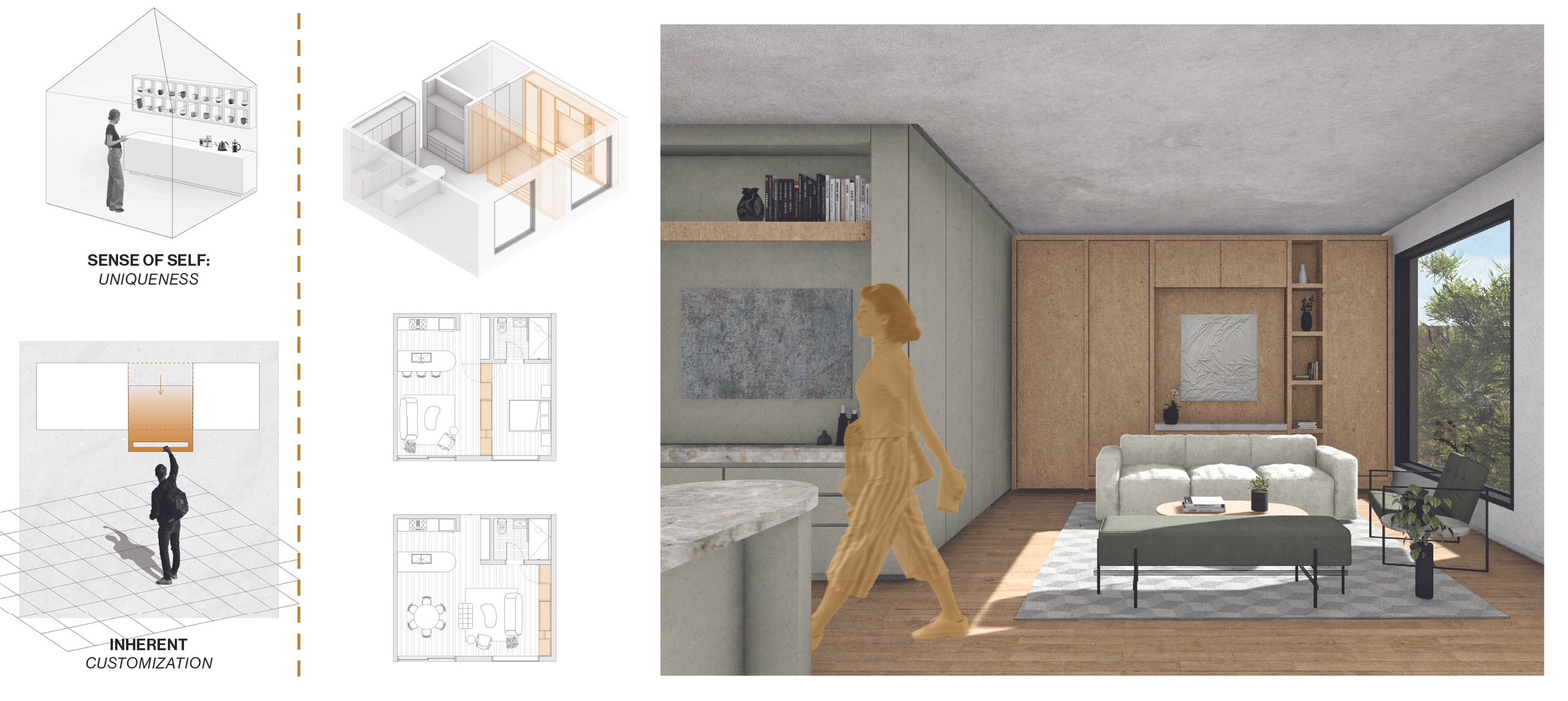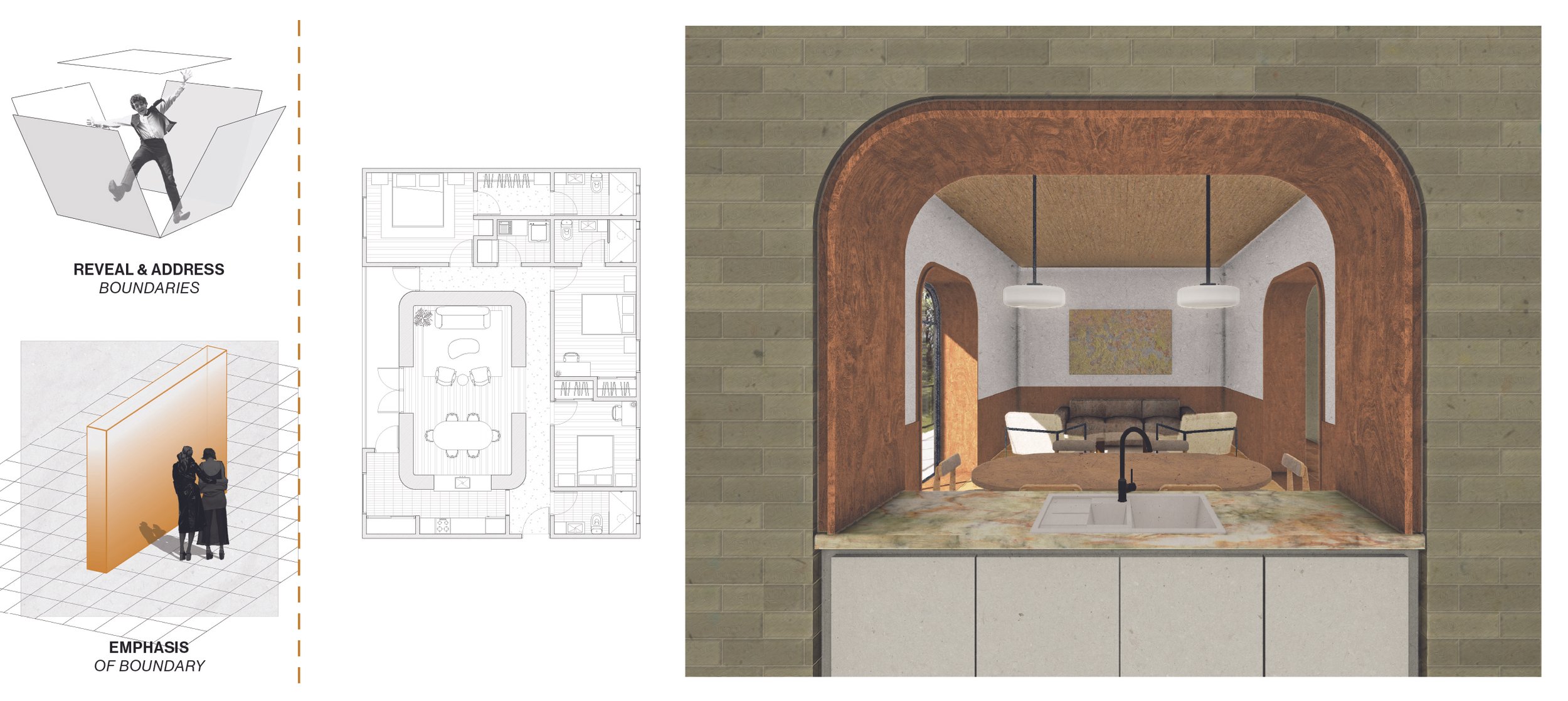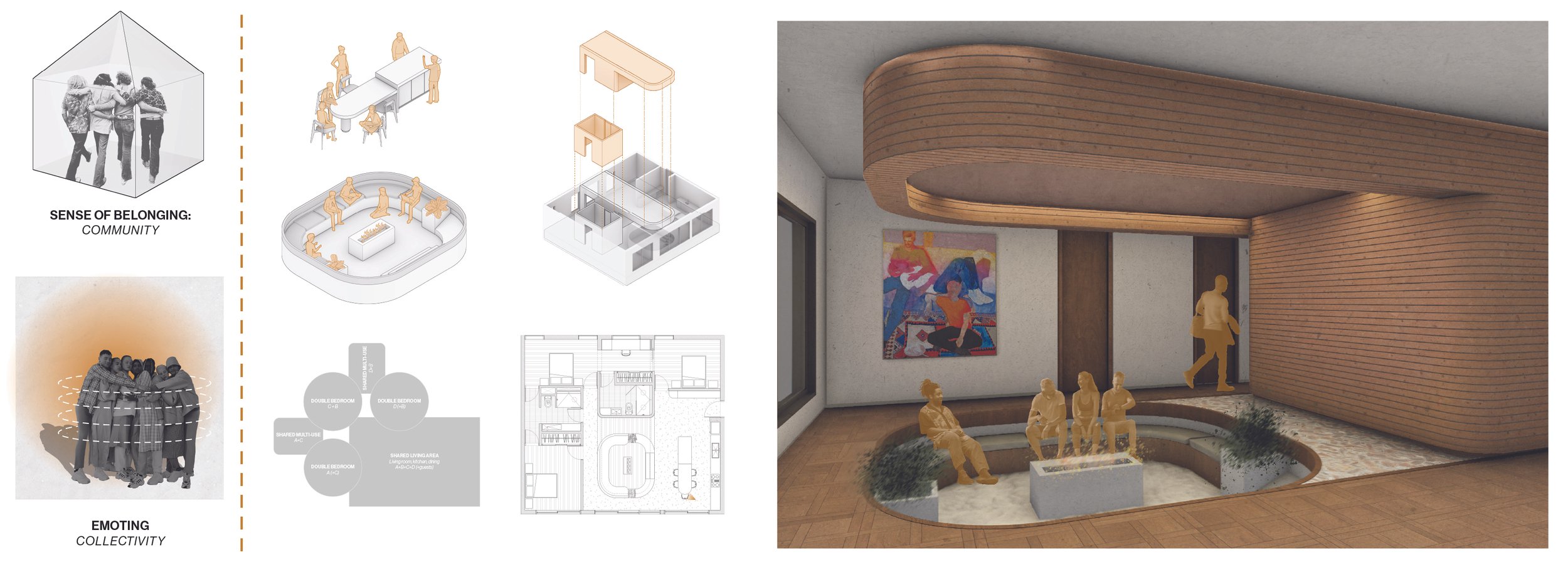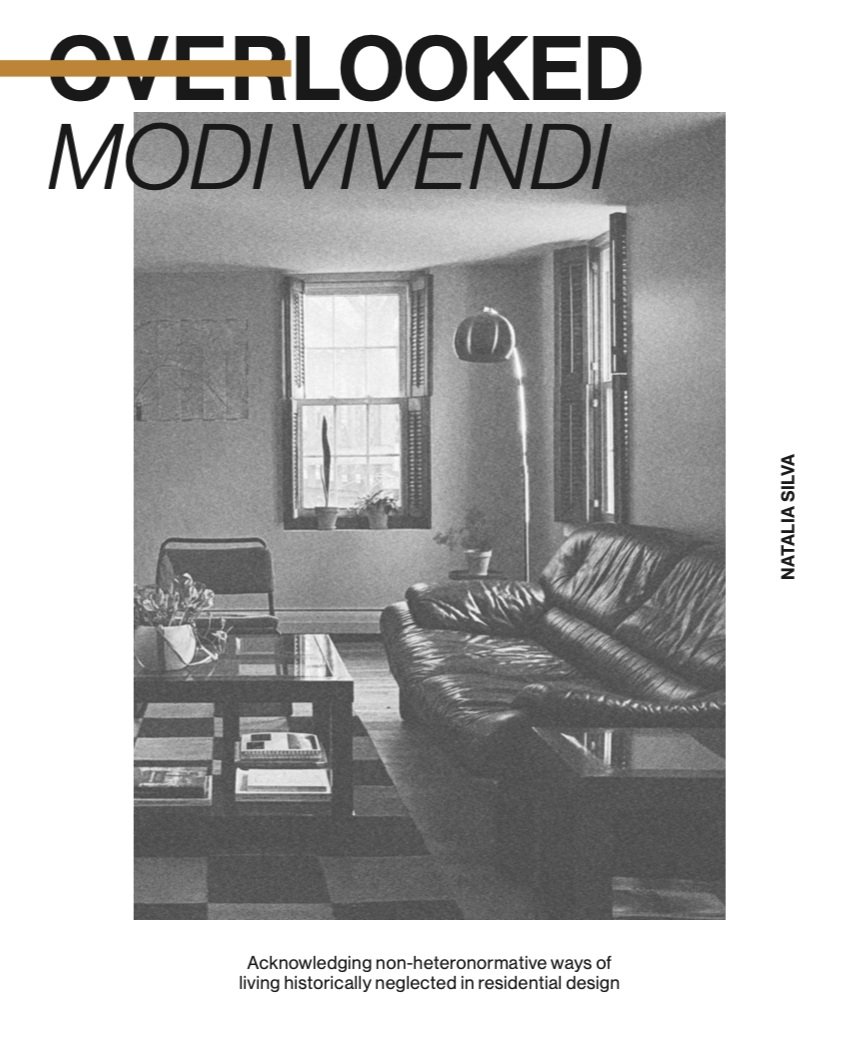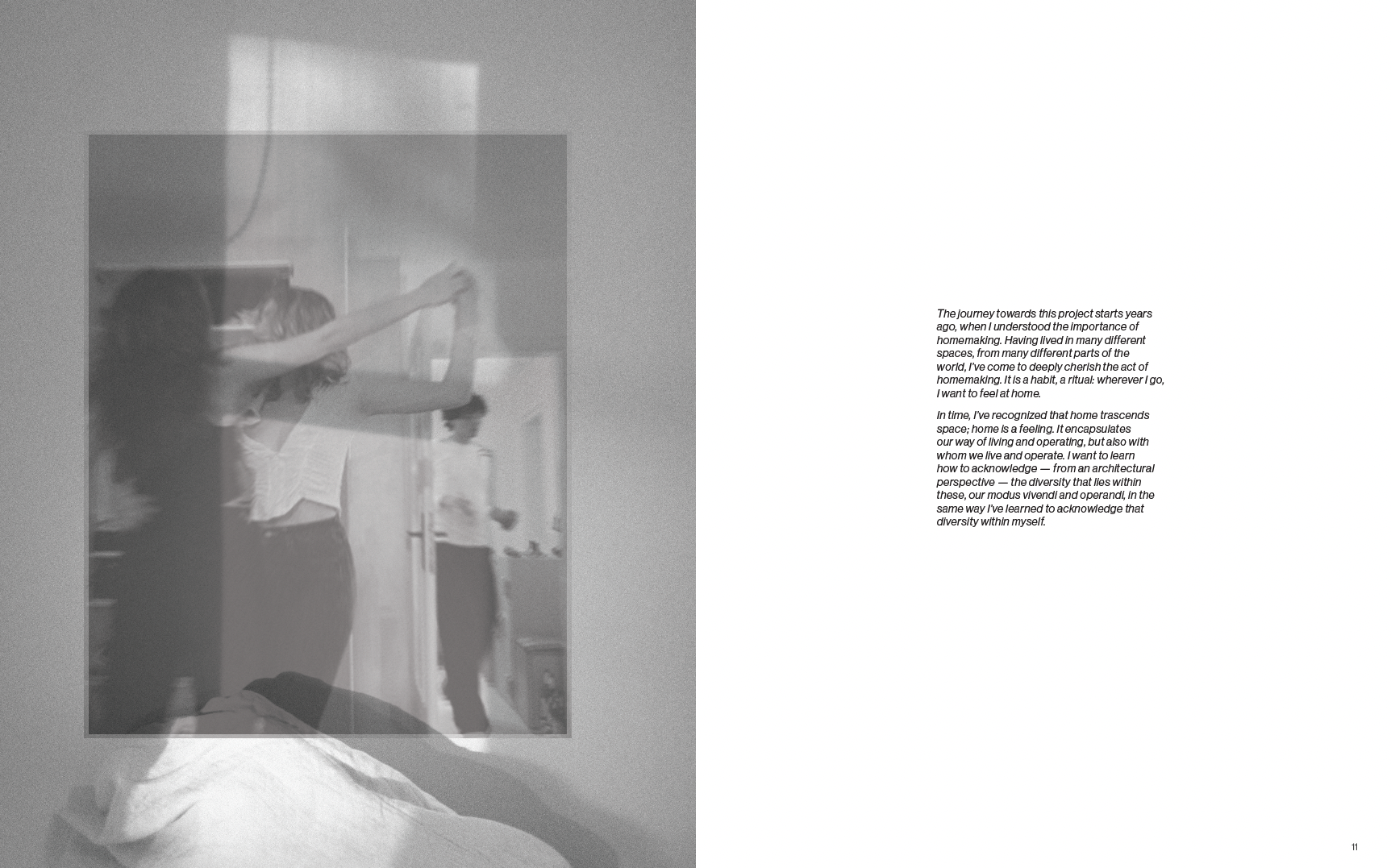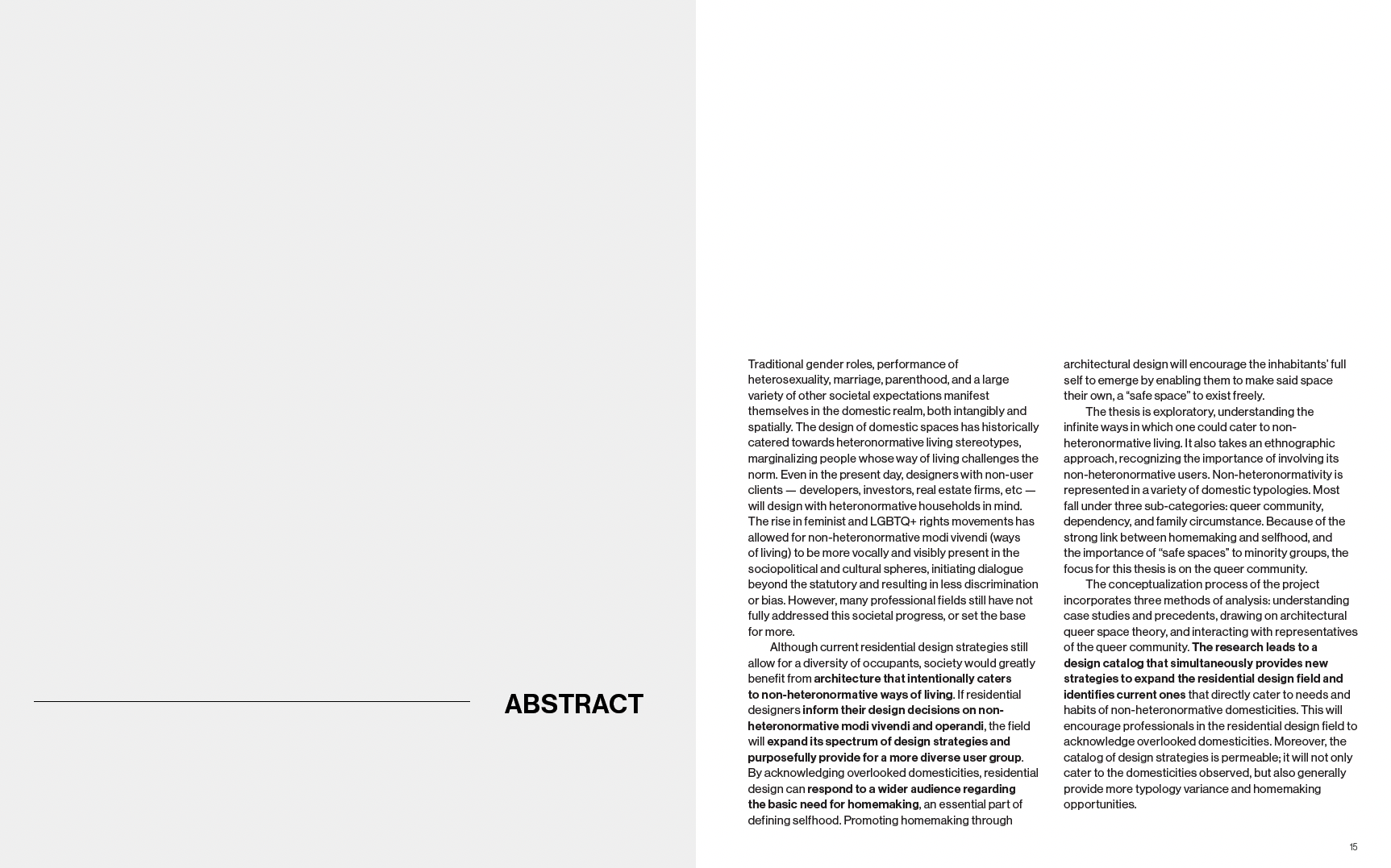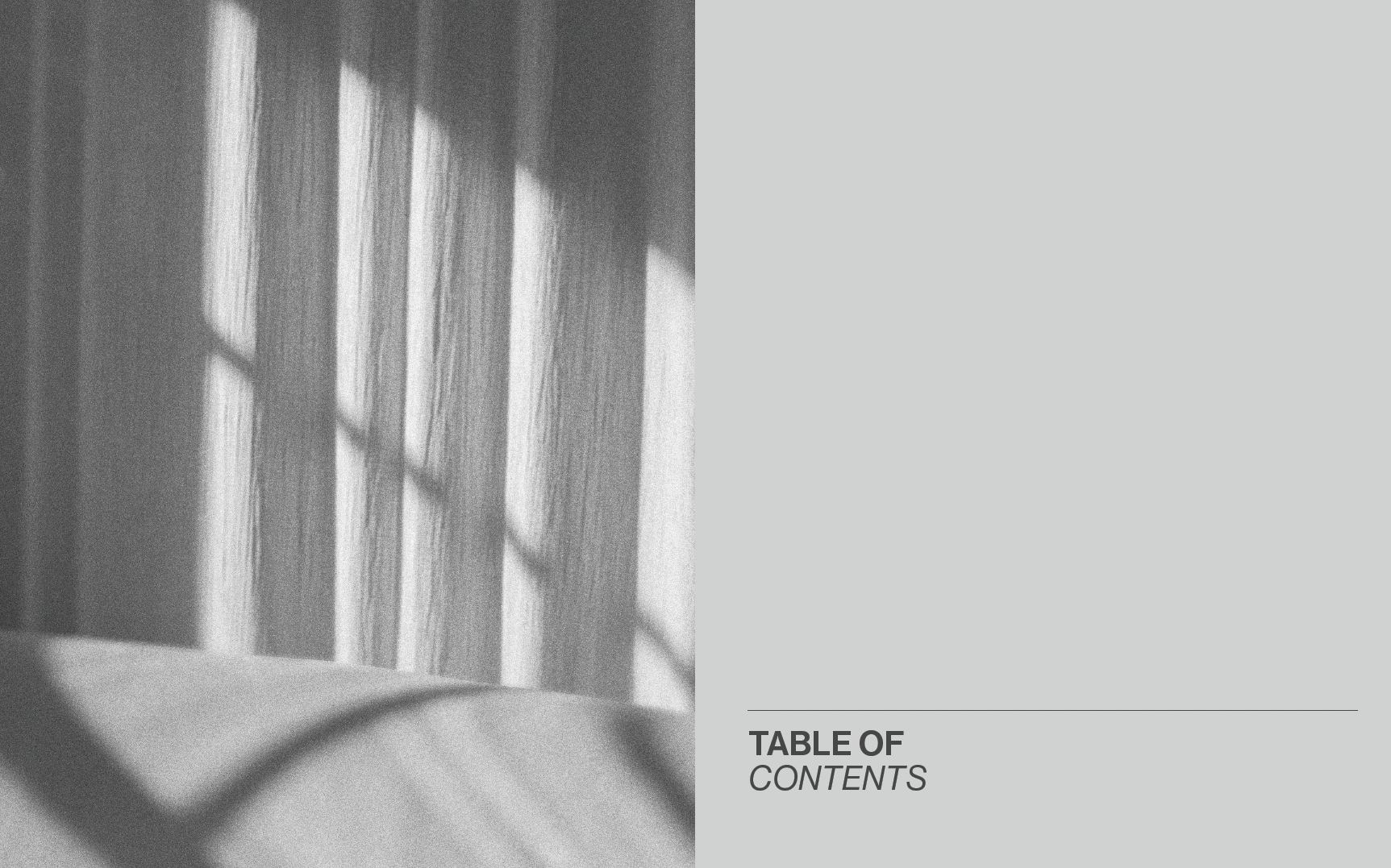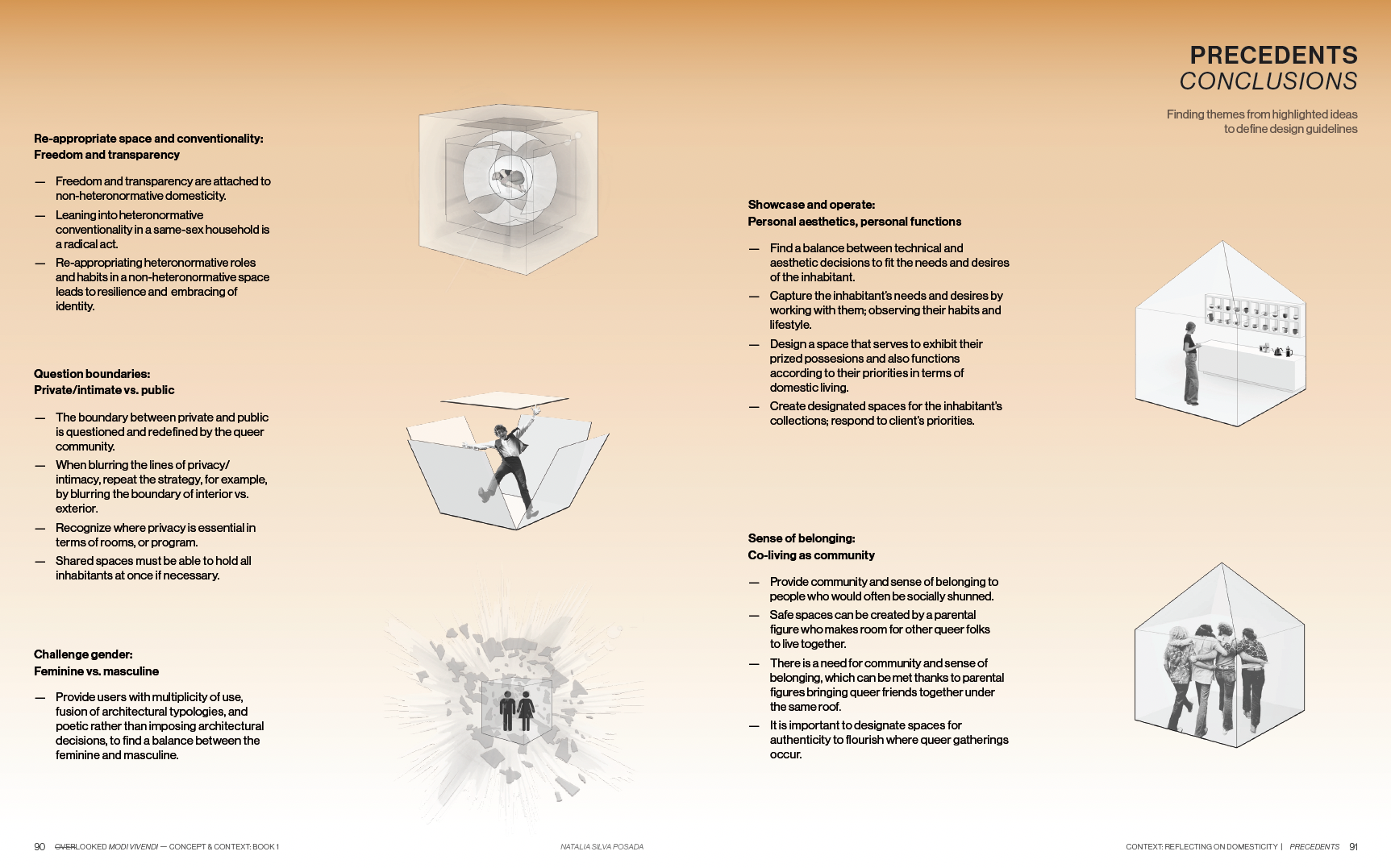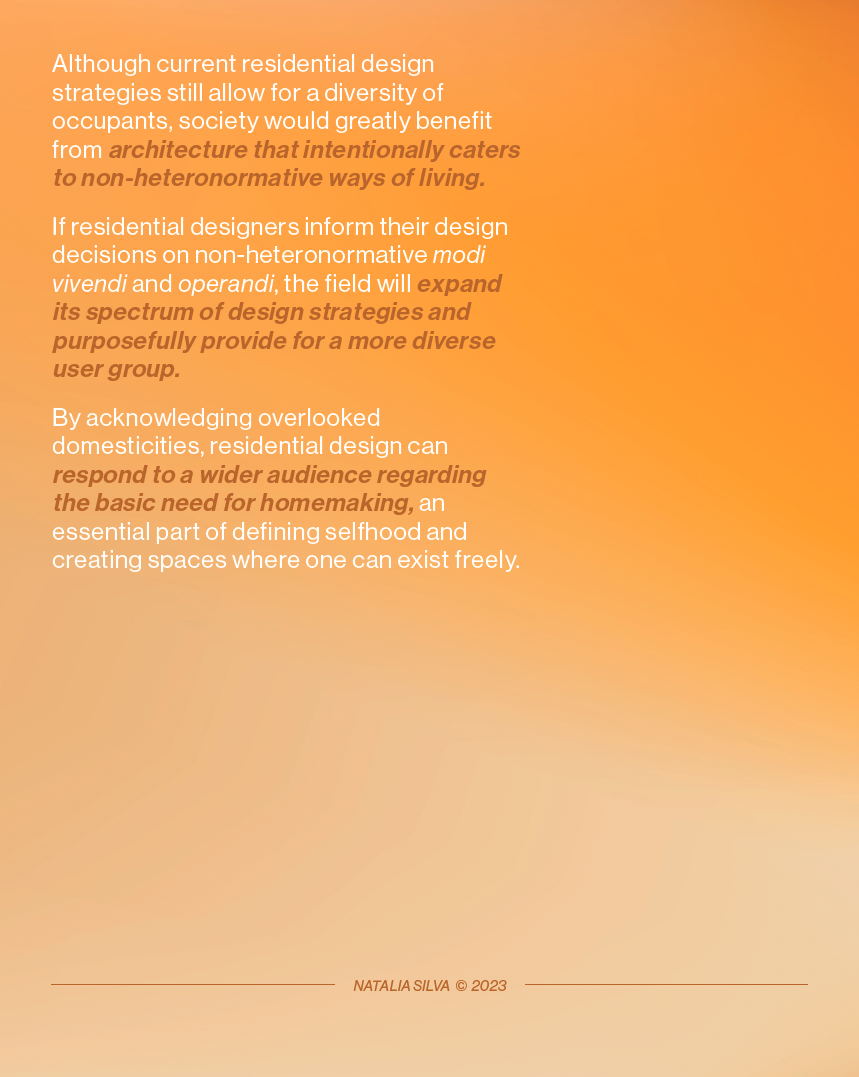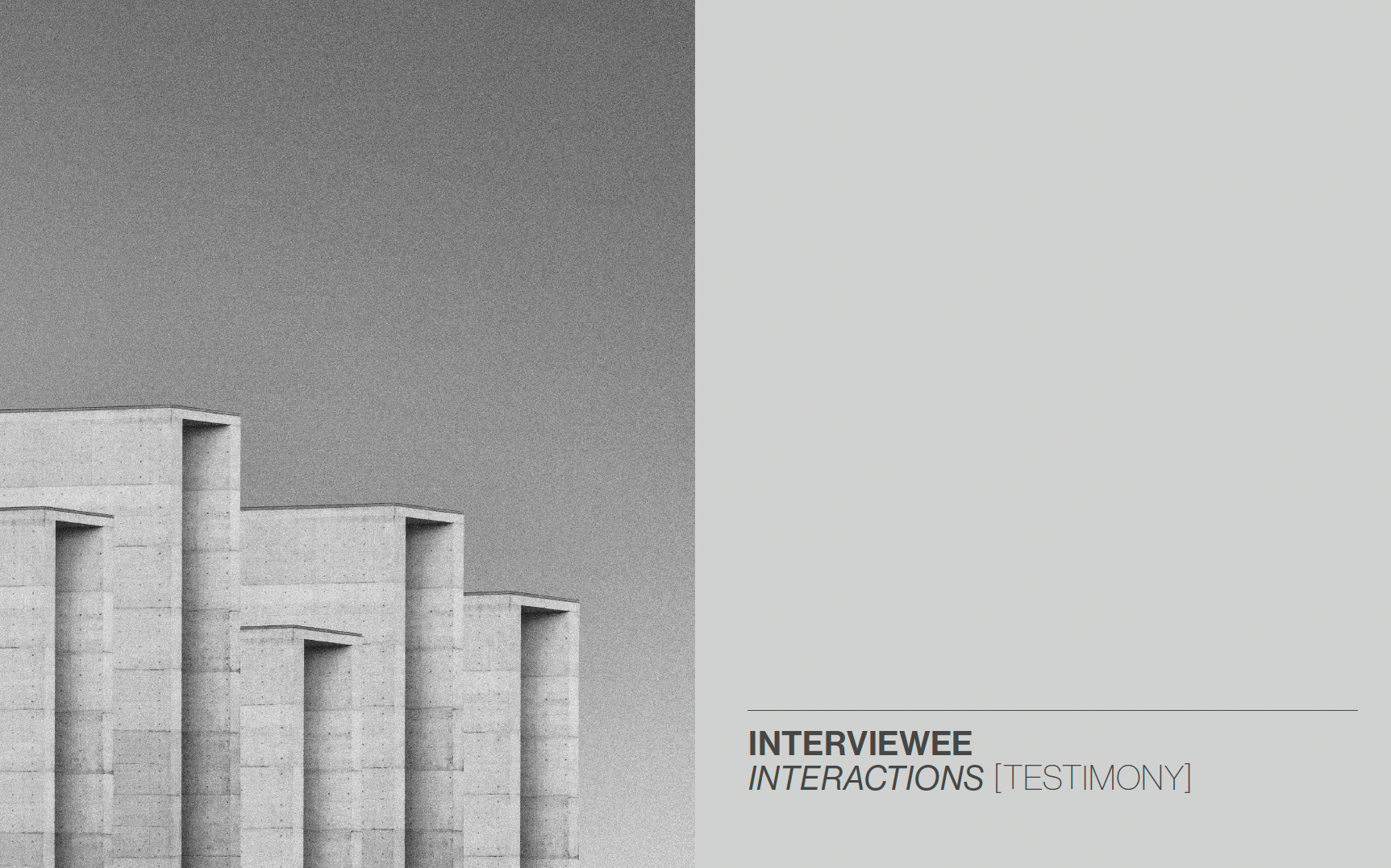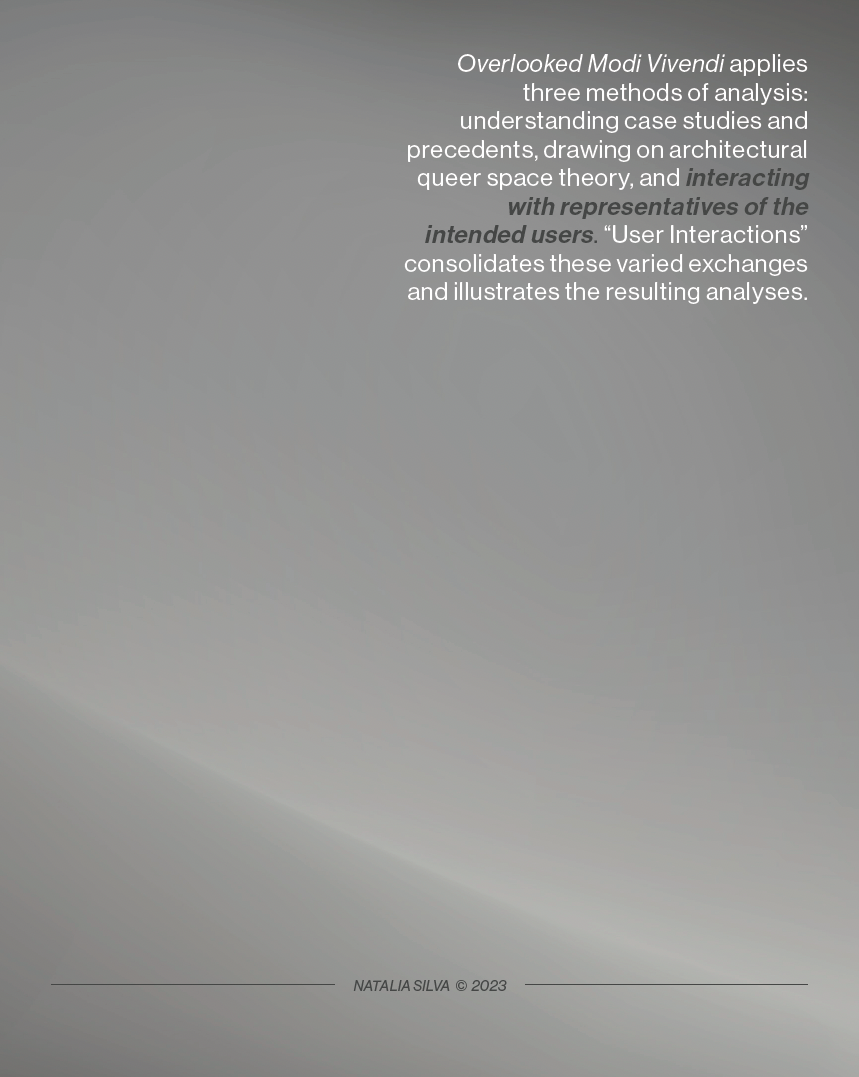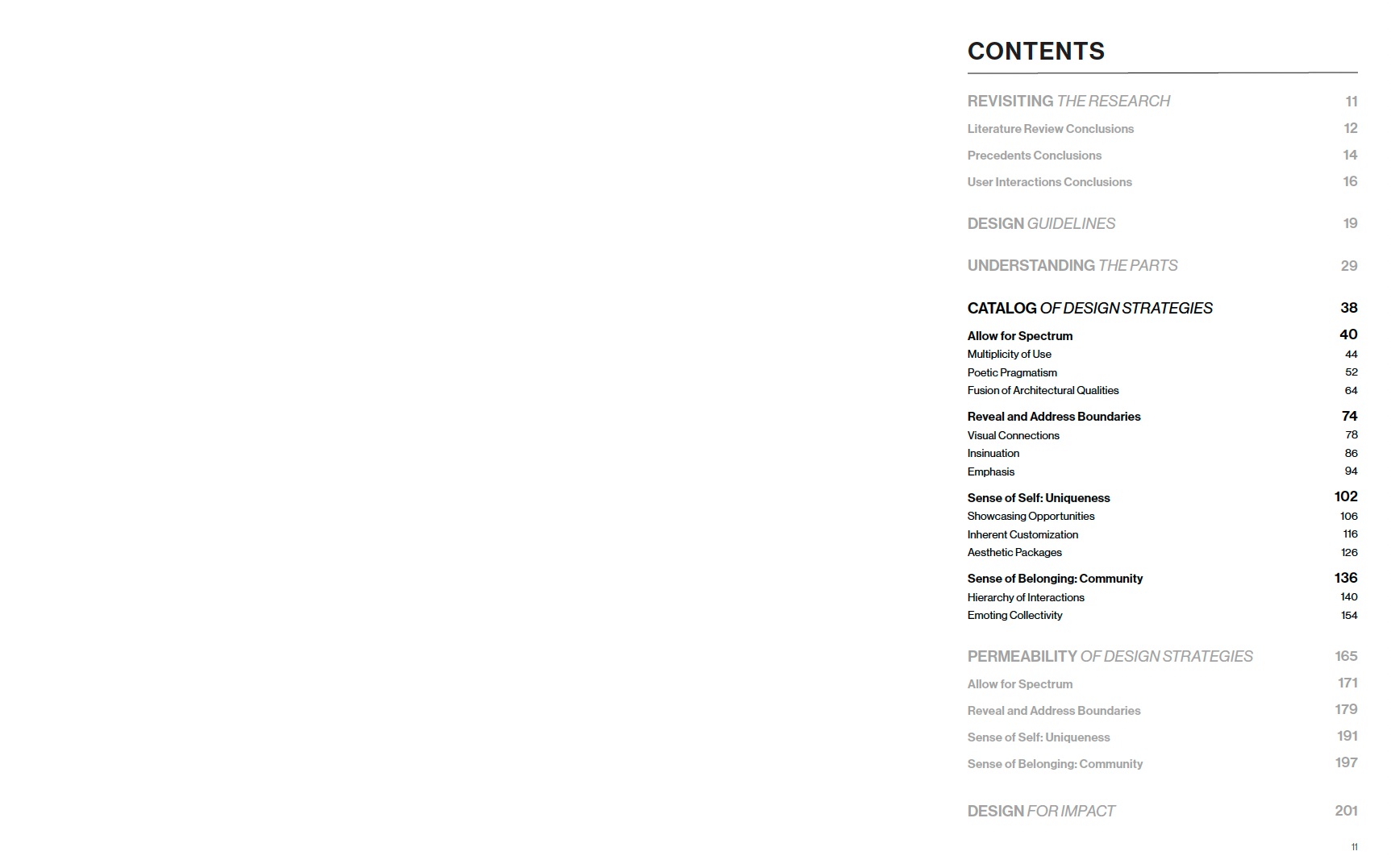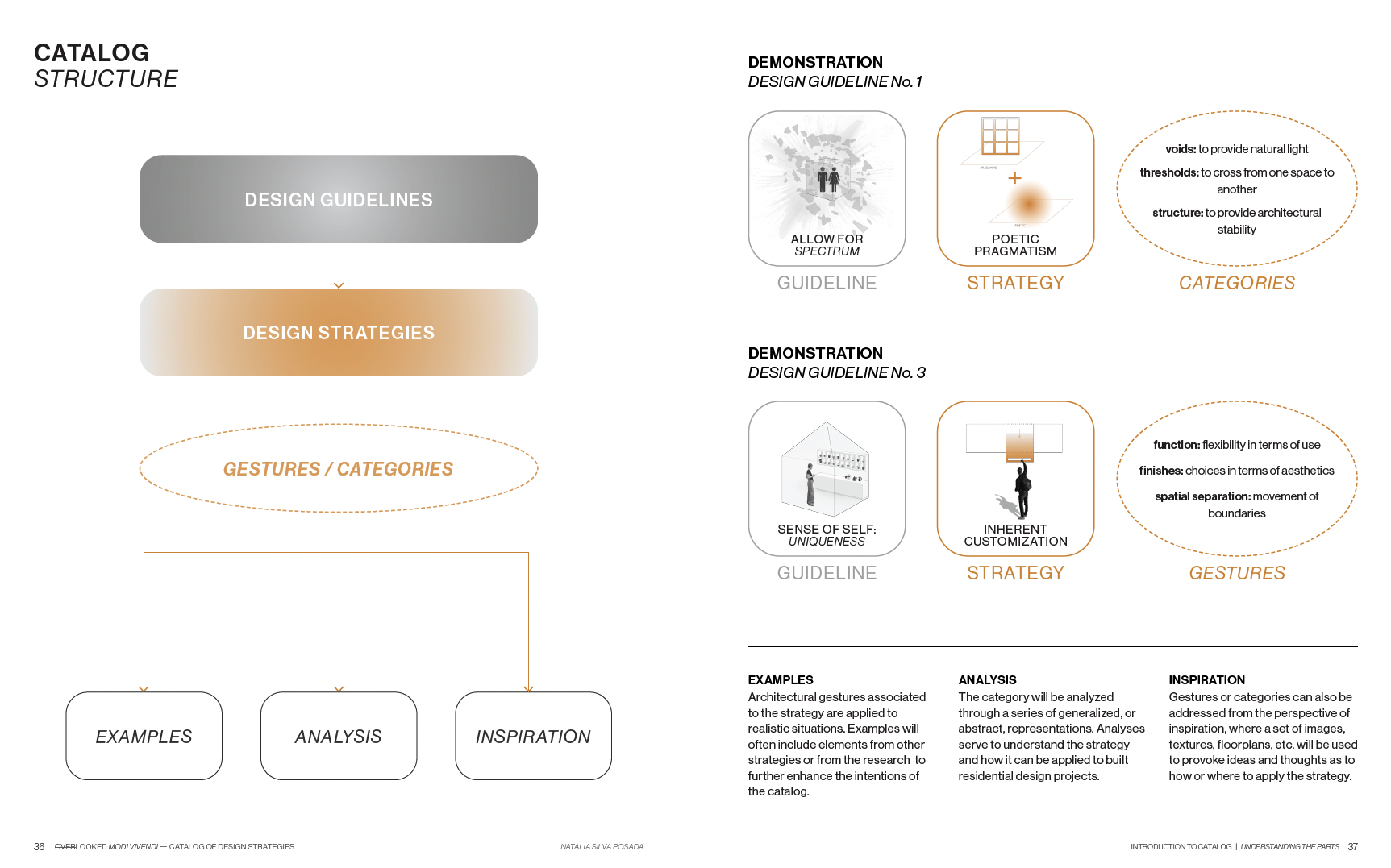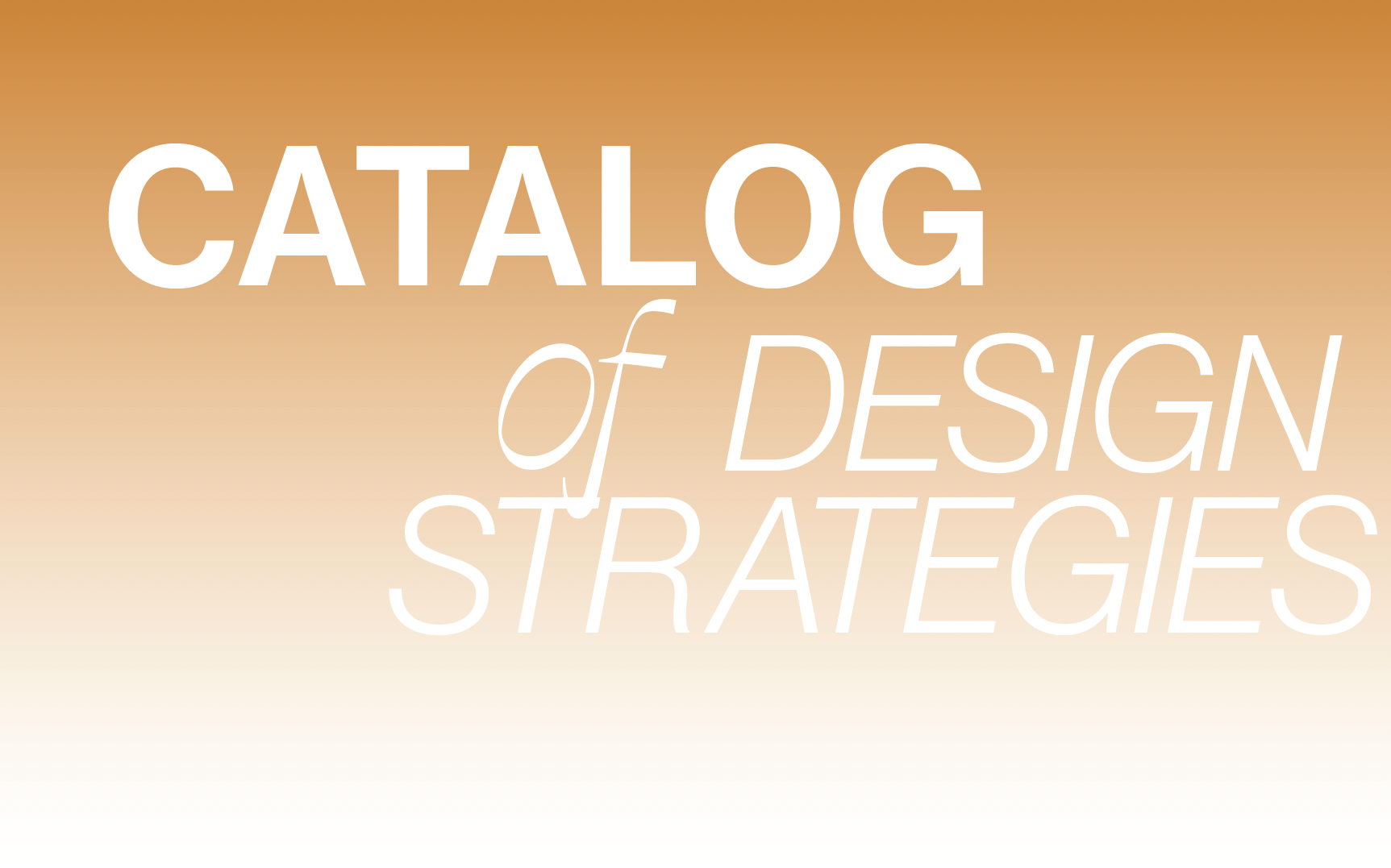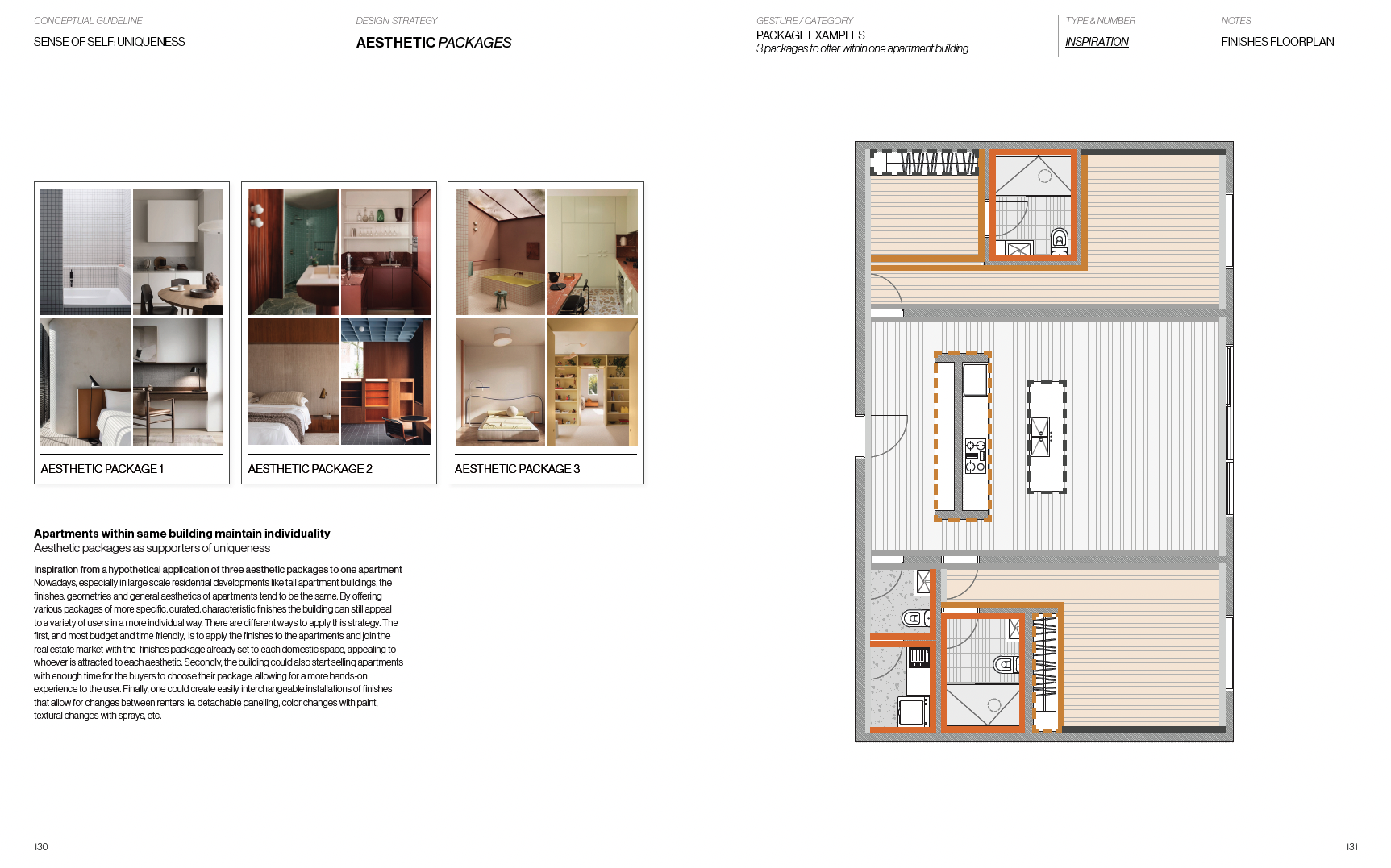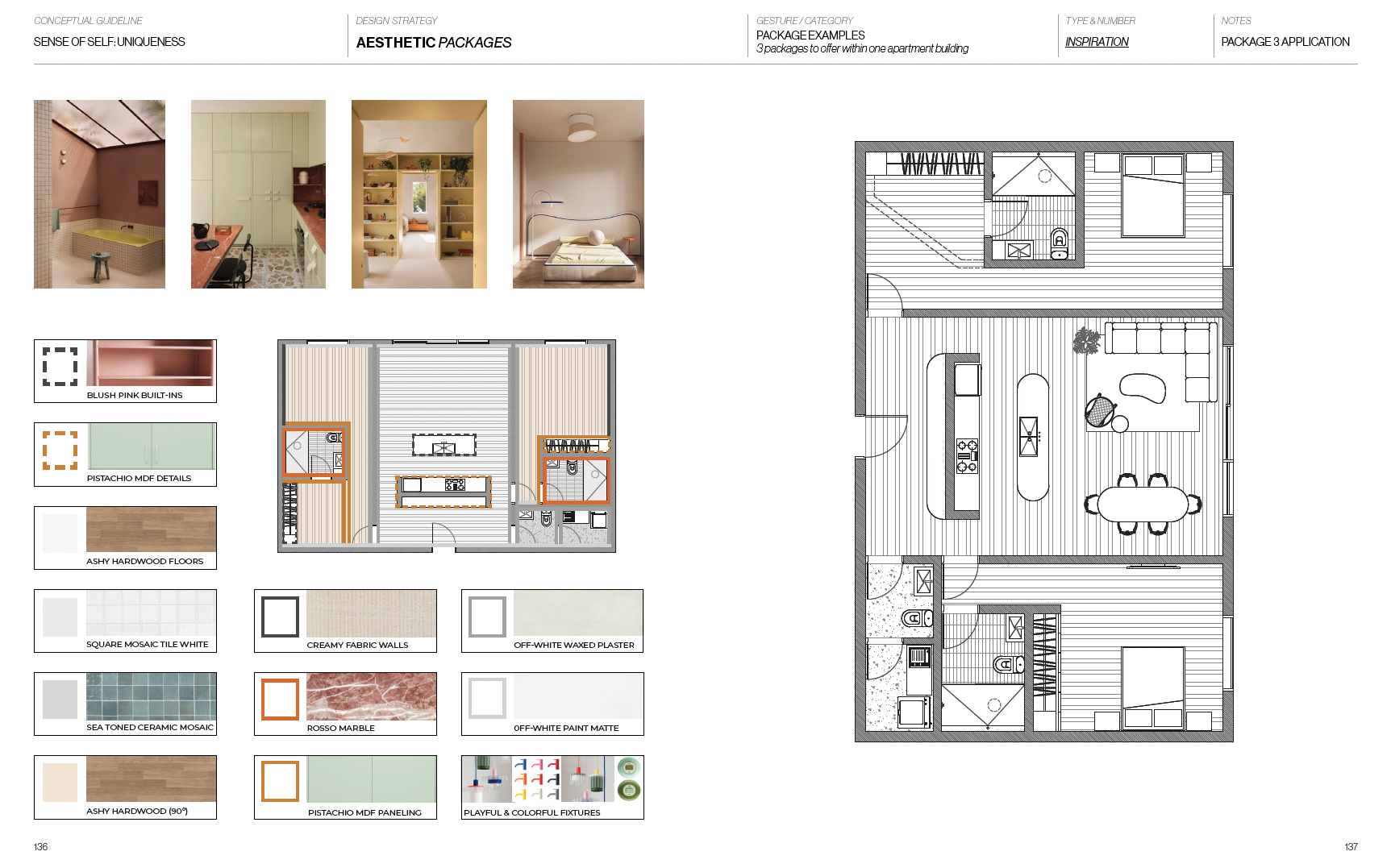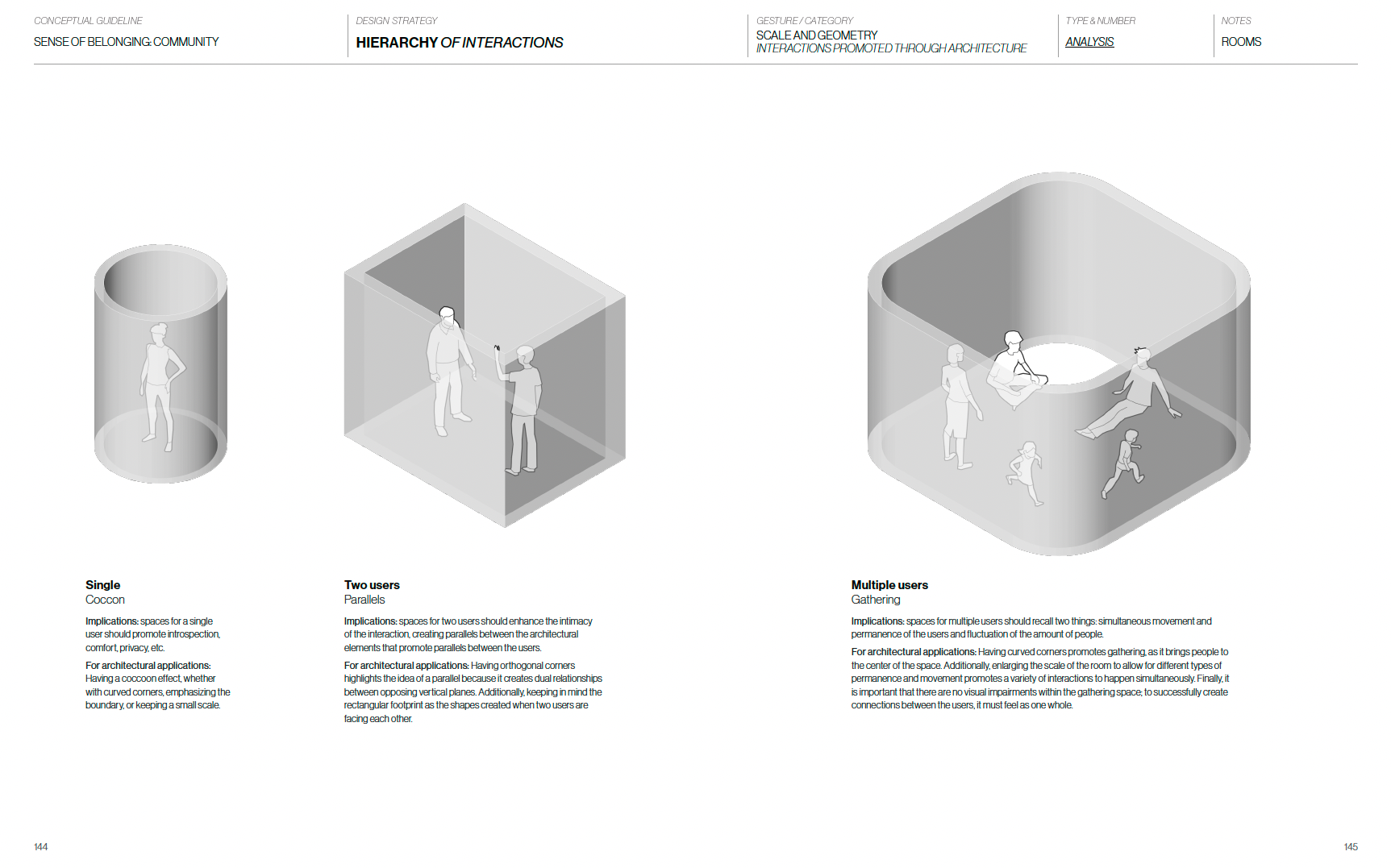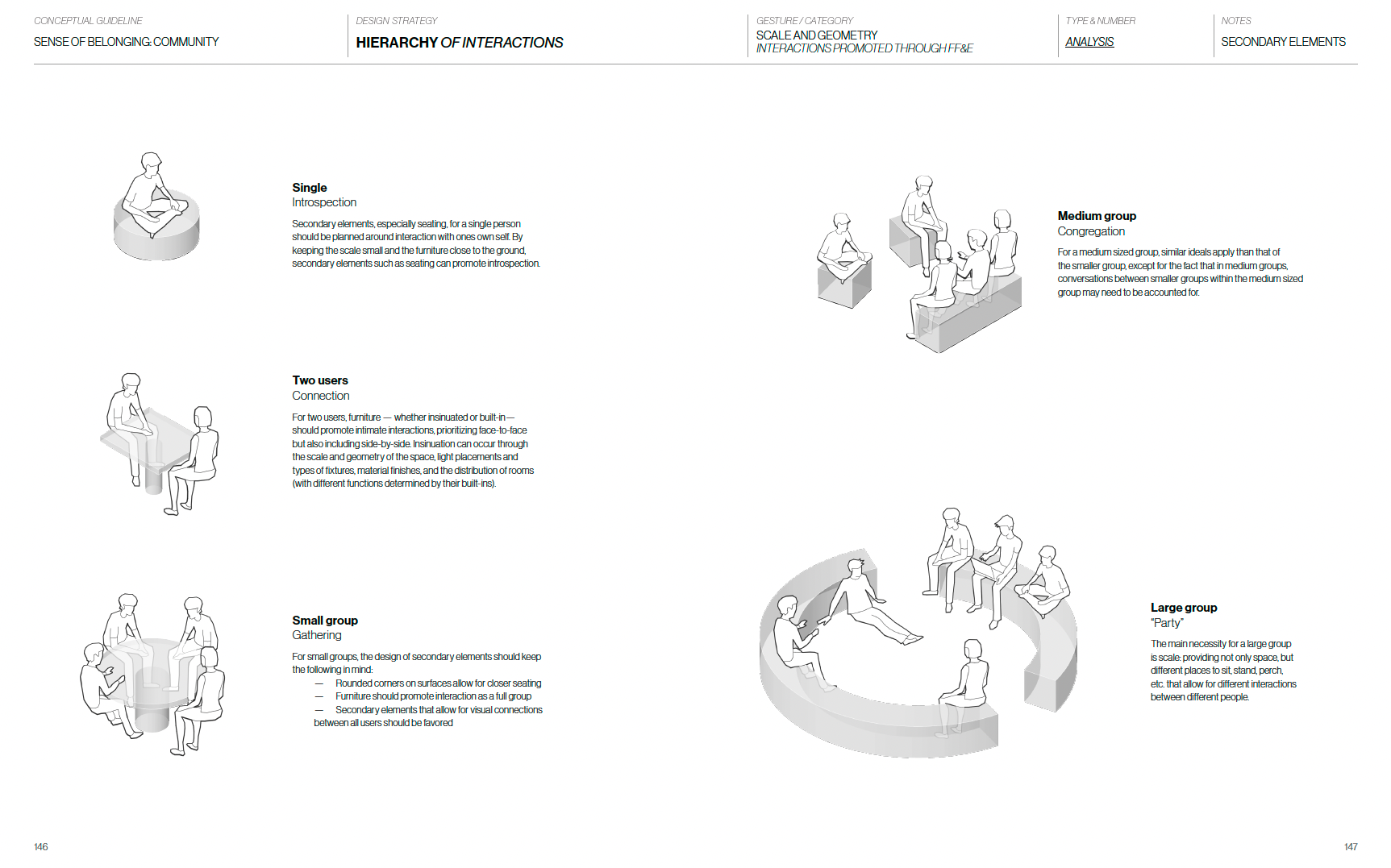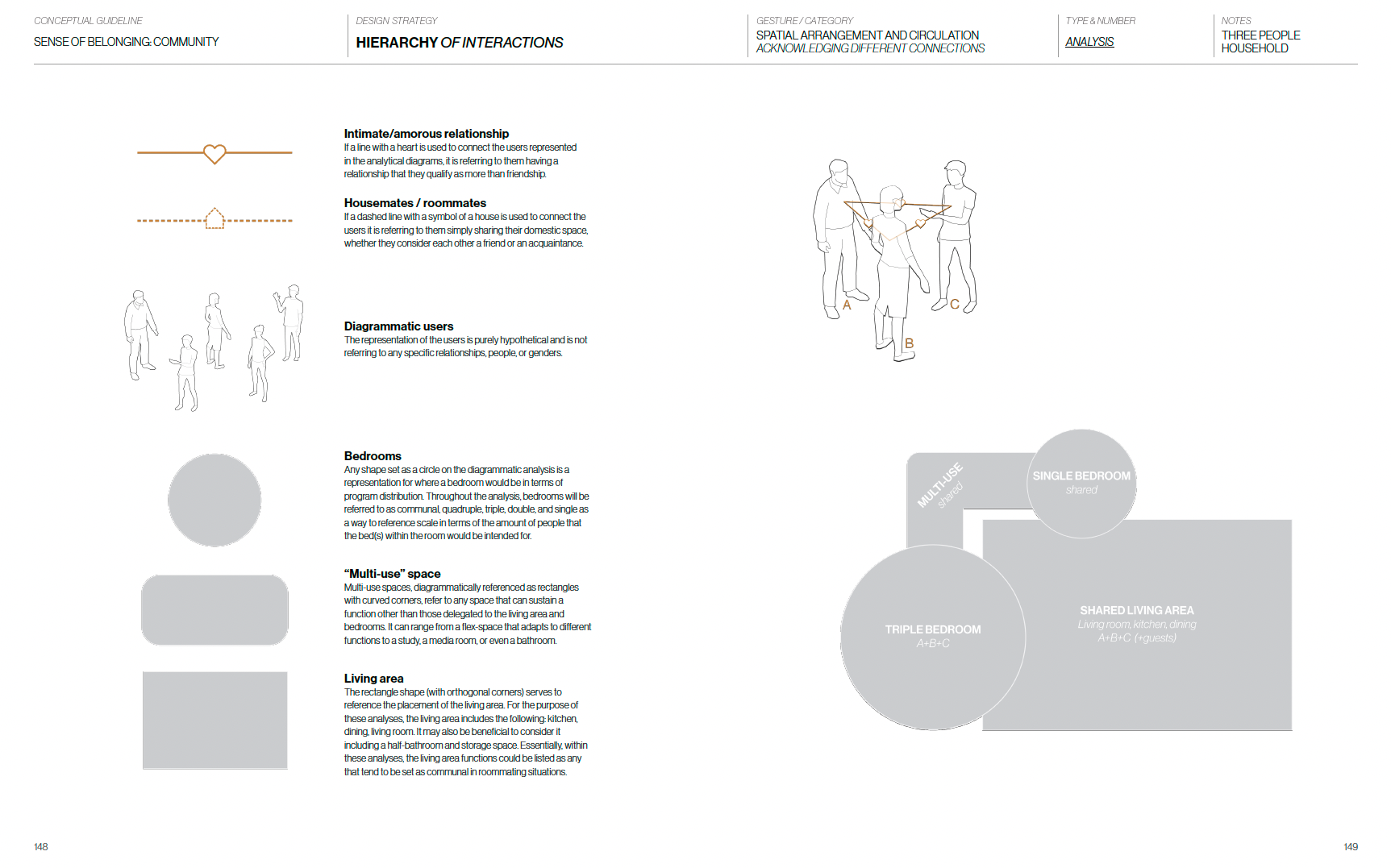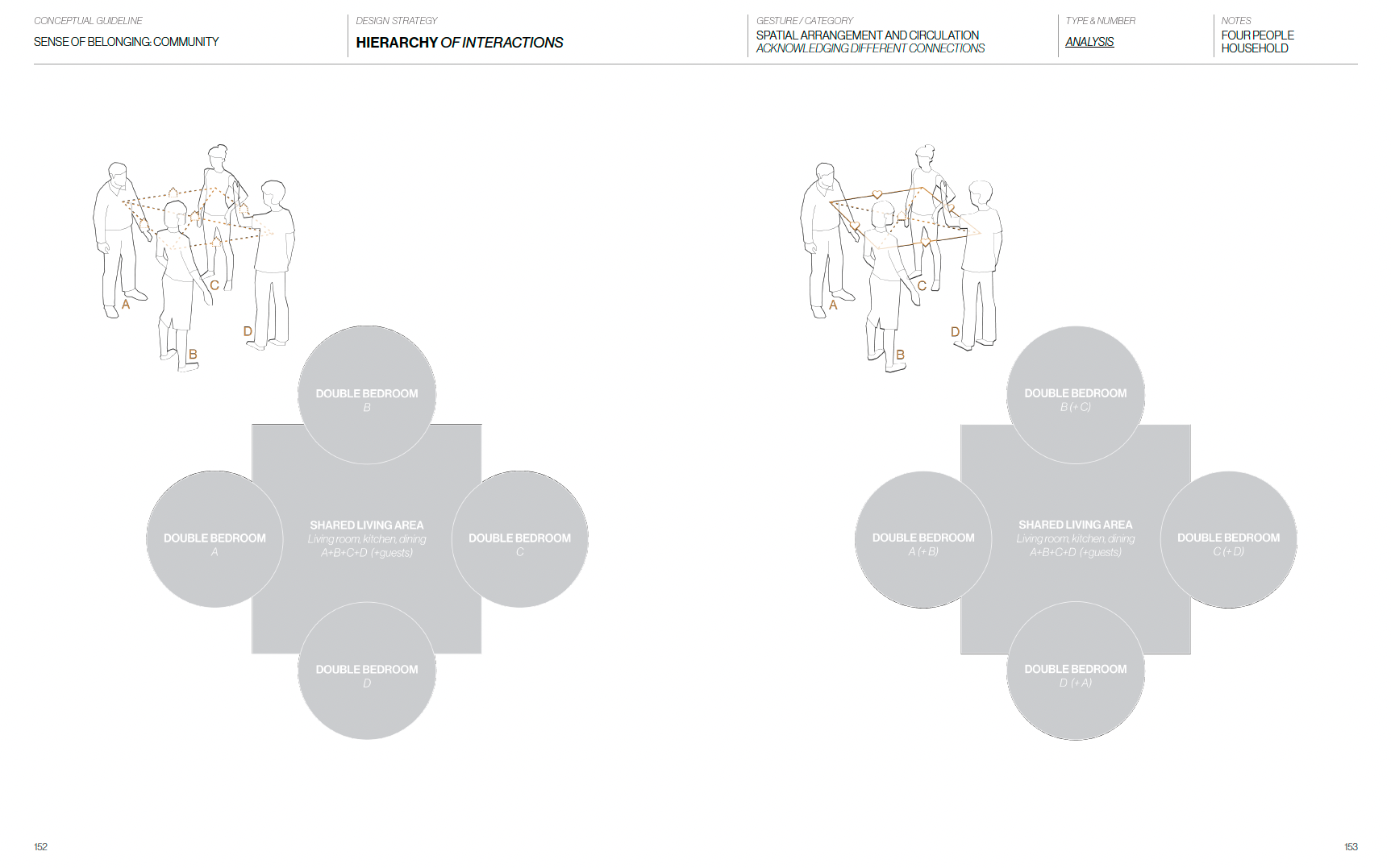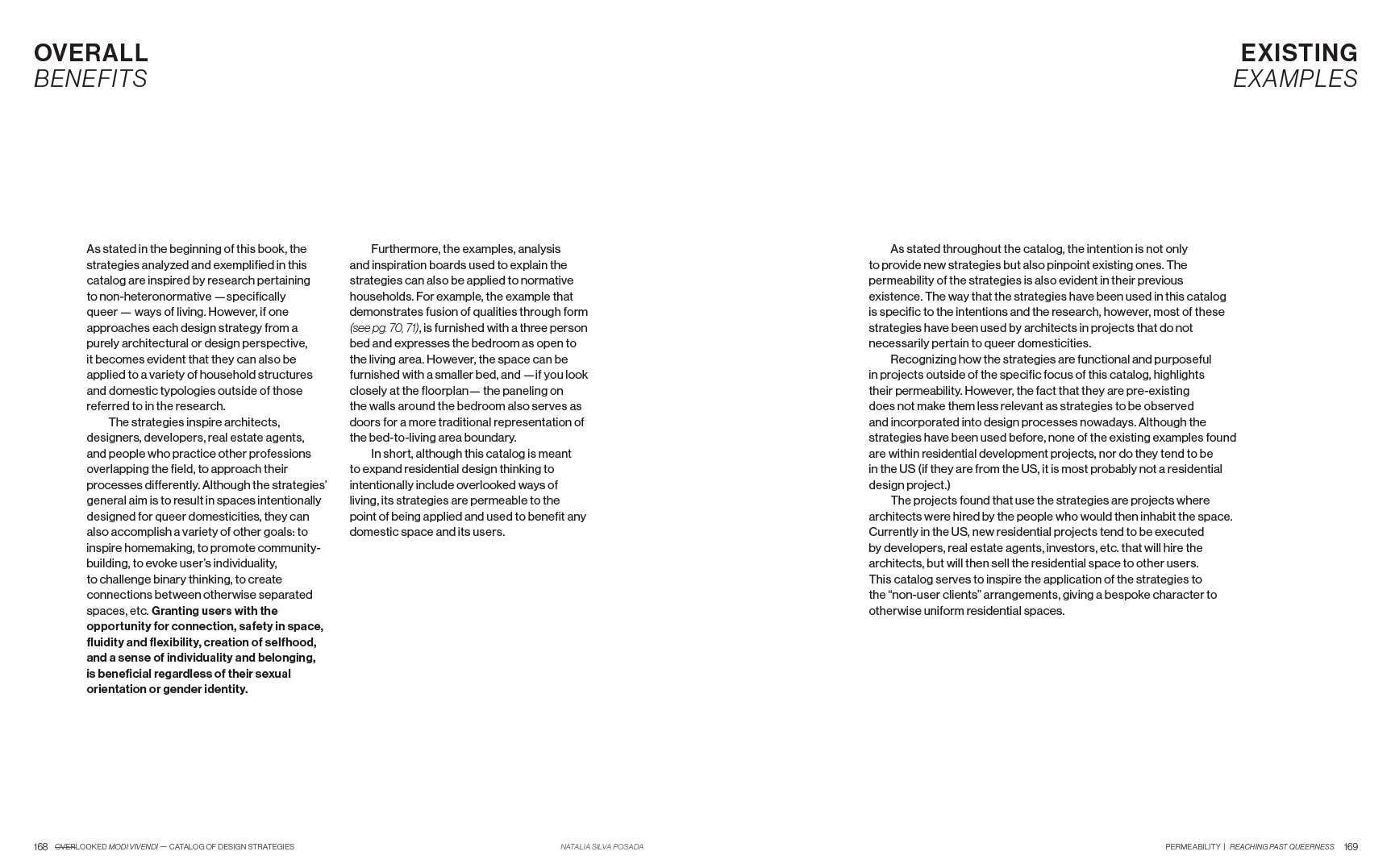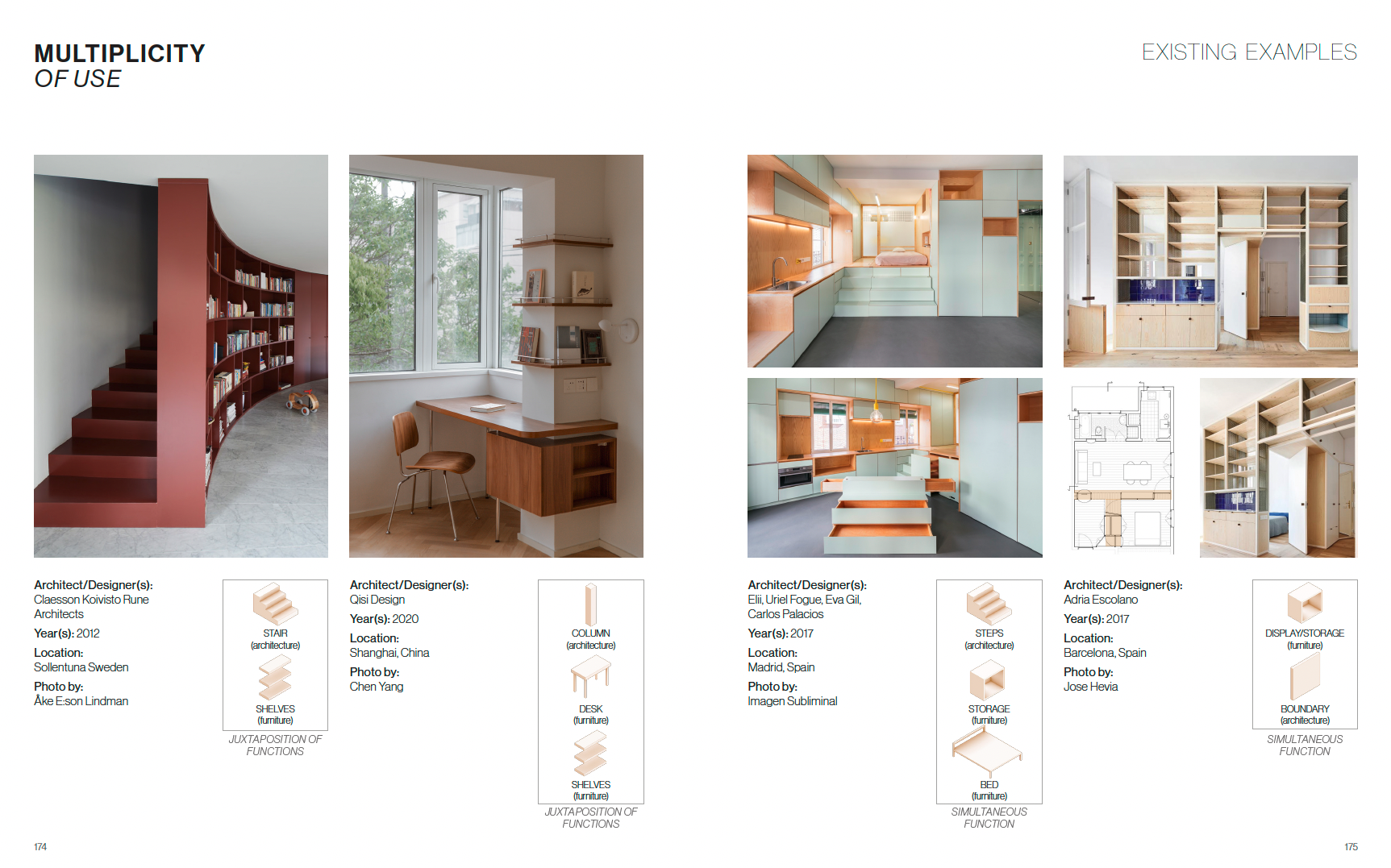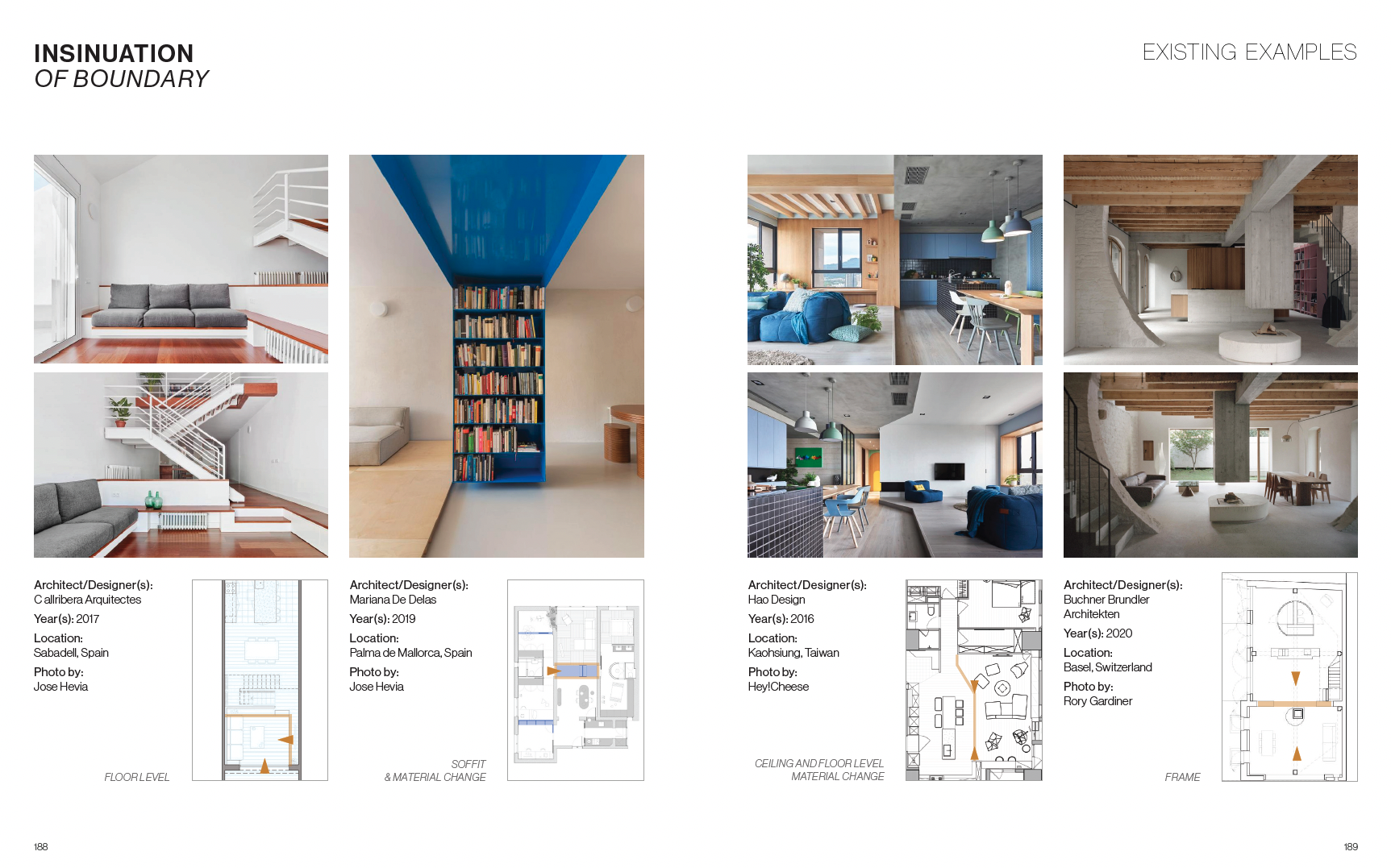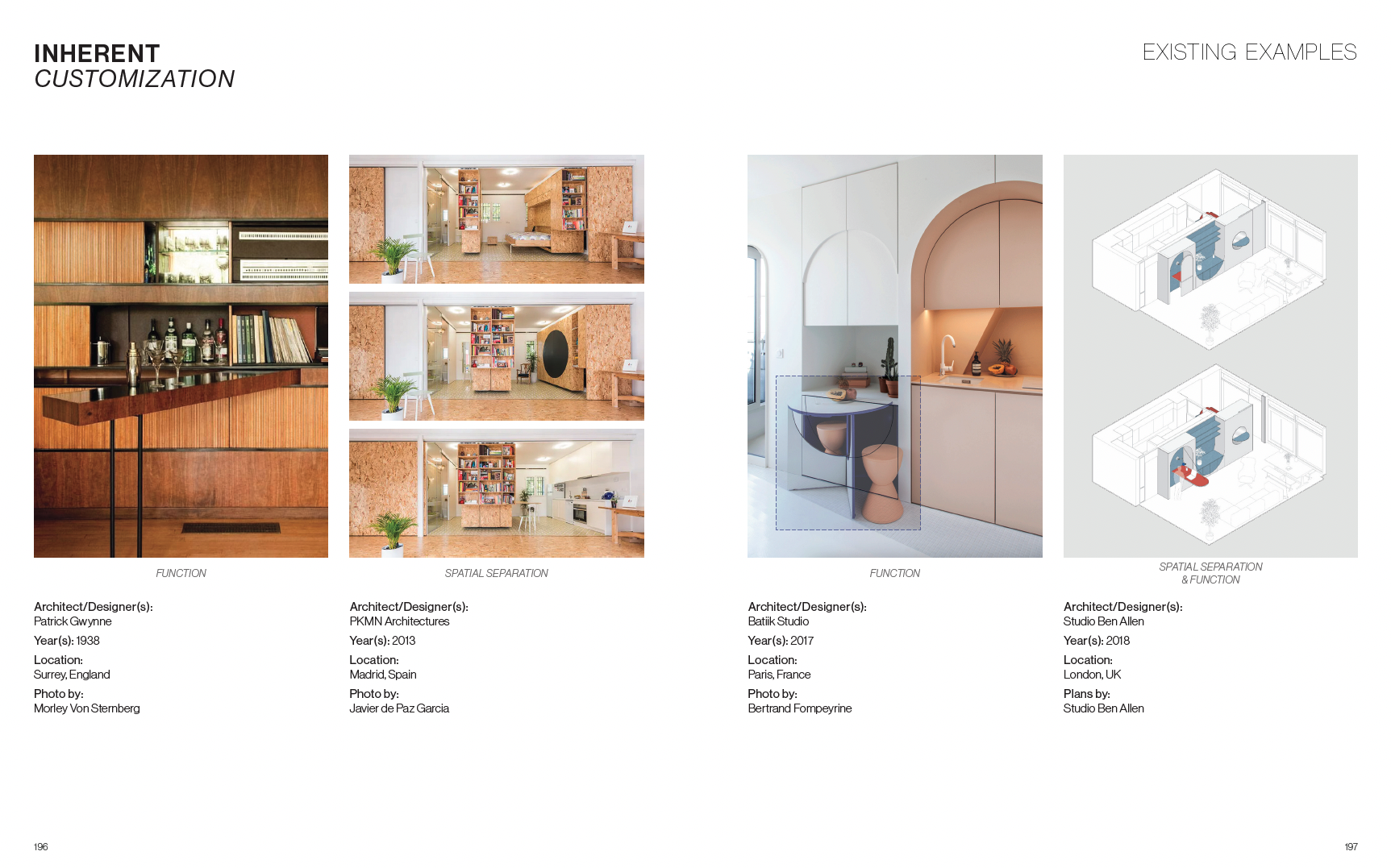
Overlooked
Modi Vivendi
Research and design thesis for the Masters of Design in Interior Architecture at Rhode Island School of Design.
Published personally for educational purposes, 2023
Research & Design Advisors: Jeffrey Katz, Barbara Stehle, and Alice T. Friedman
Traditional gender roles, performance of heterosexuality, marriage, parenthood, and a large variety of other societal expectations manifest themselves in the domestic realm, both intangibly and spatially. Even in the present day, designers with non-user clients — developers, investors, real estate firms, etc. — will design with the heteronormative household (nuclear family) in mind. Although current residential design strategies still allow for a diversity of occupants, society would greatly benefit from architecture that intentionally includes non-heteronormative ways of living into their design process. This thesis intends to encourage residential designers to inform their design decisions on non-heteronormative modi vivendi, recognizing how the queer (LGBTQ+) lived experience can inspire design. The project also highlights how promoting homemaking through architectural design can encourage the inhabitants’ full self to emerge by enabling them to make said space their own, a “safe space” to exist freely.
The conceptualization process of the project incorporates three methods of analysis: understanding case studies and precedents, drawing on architectural queer space theory, and interacting with representatives of the queer community. The research leads to a design catalog that simultaneously provides new strategies to expand the residential design field and identifies current ones that overlap queer space theory and are inspired or related to the queer experience.
Renders, graphics, book design, photographs, and other visuals by Natalia Silva
